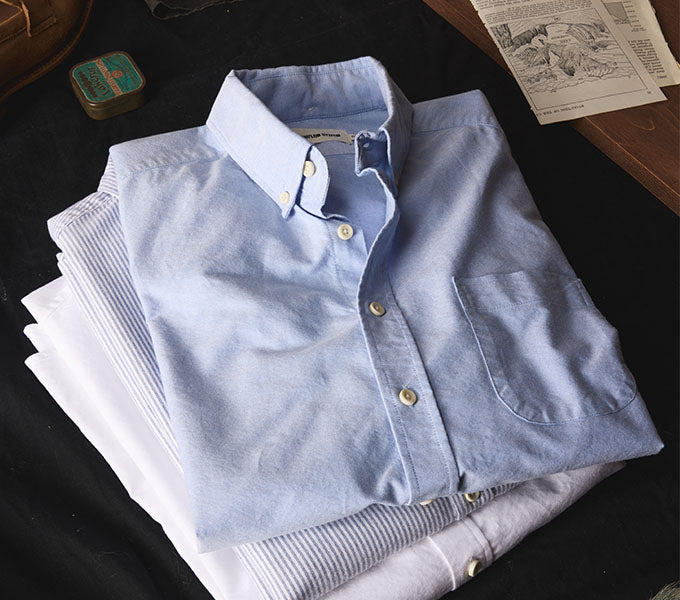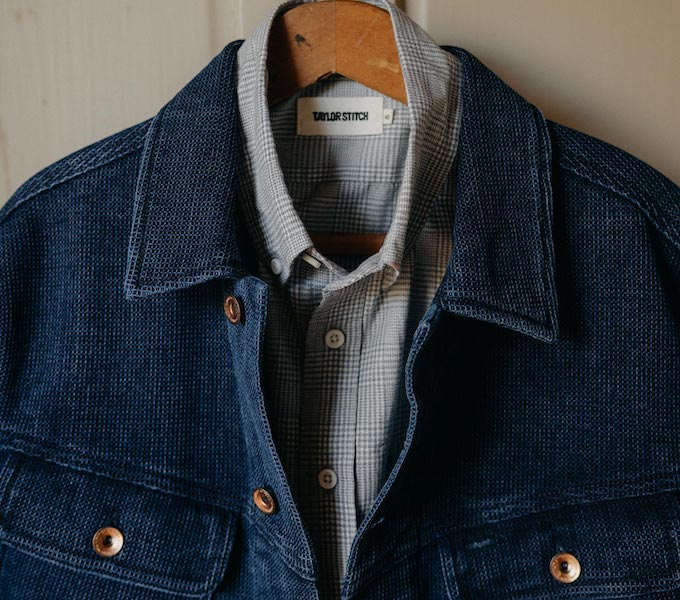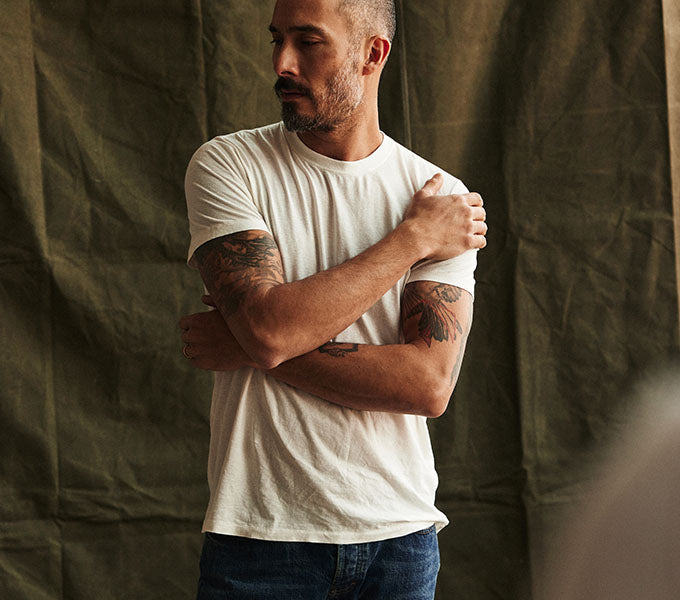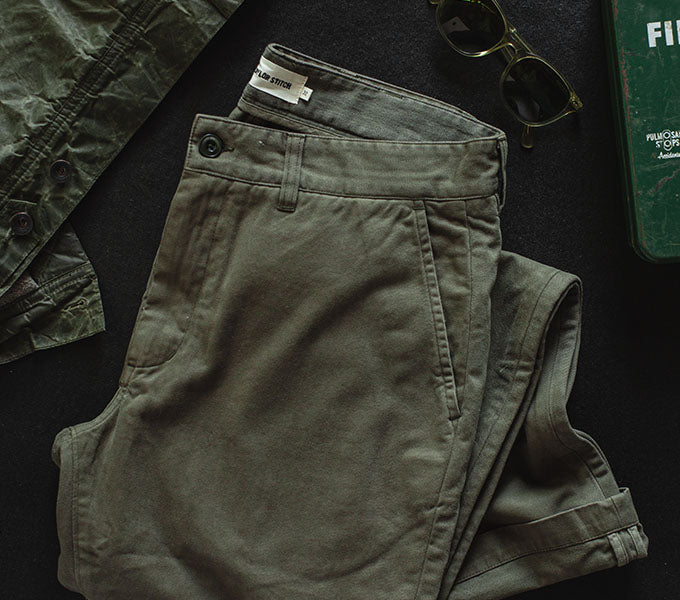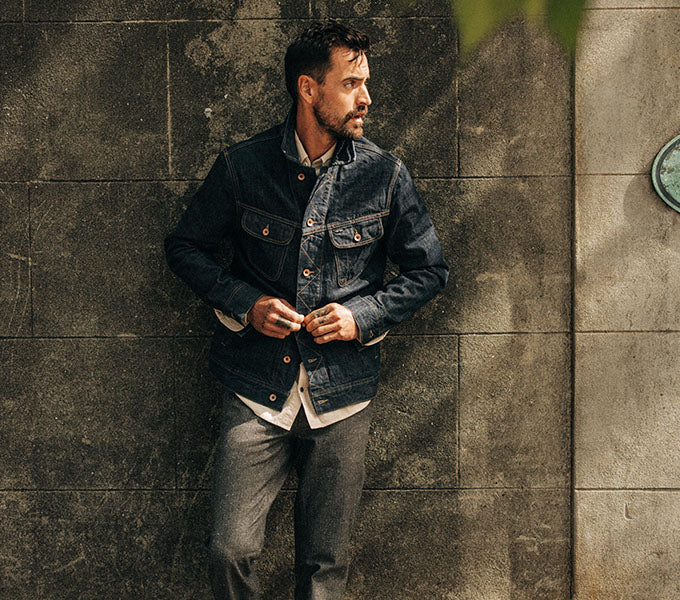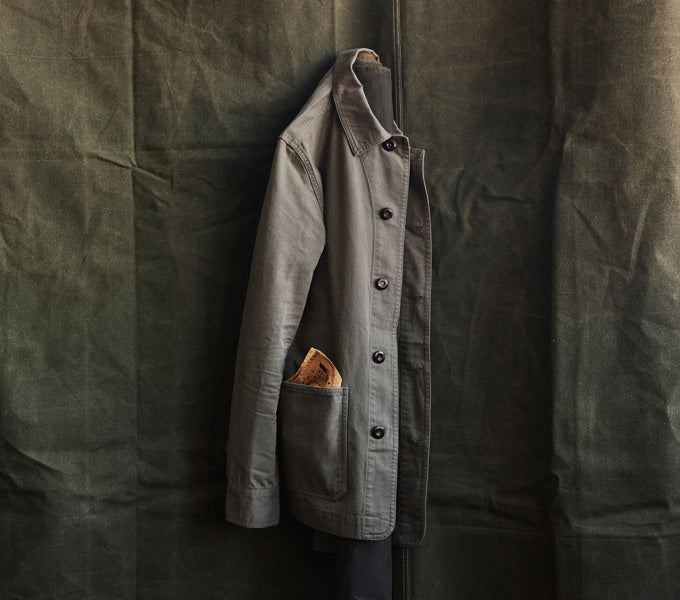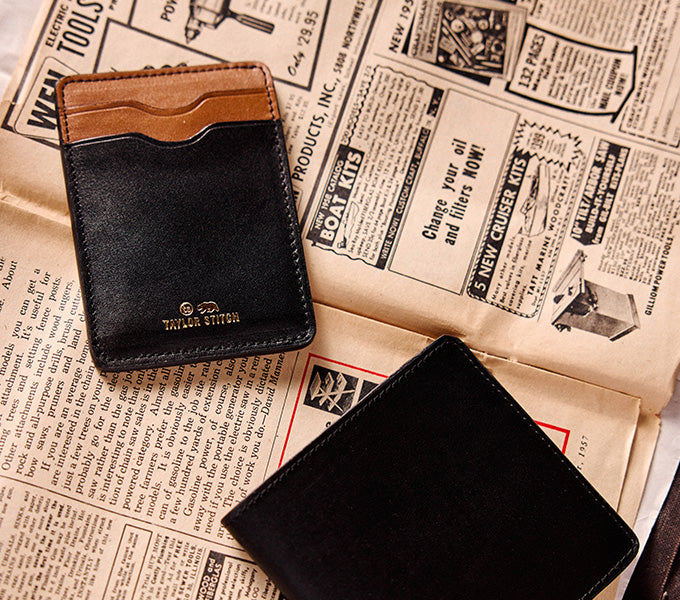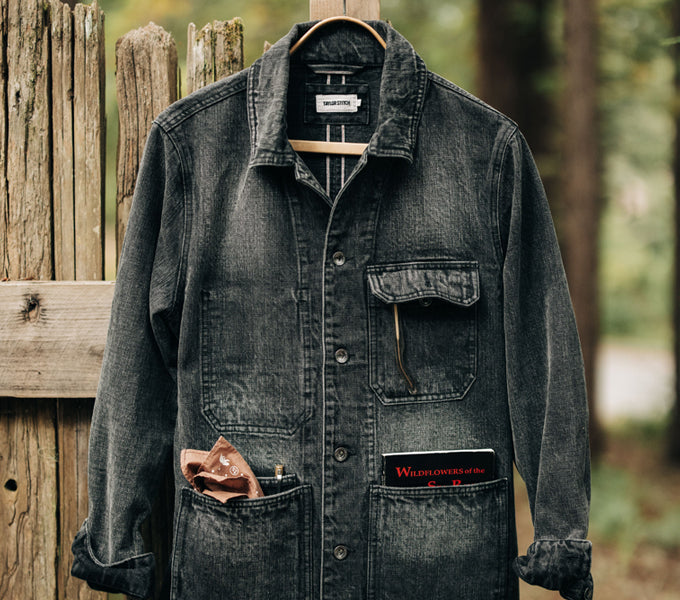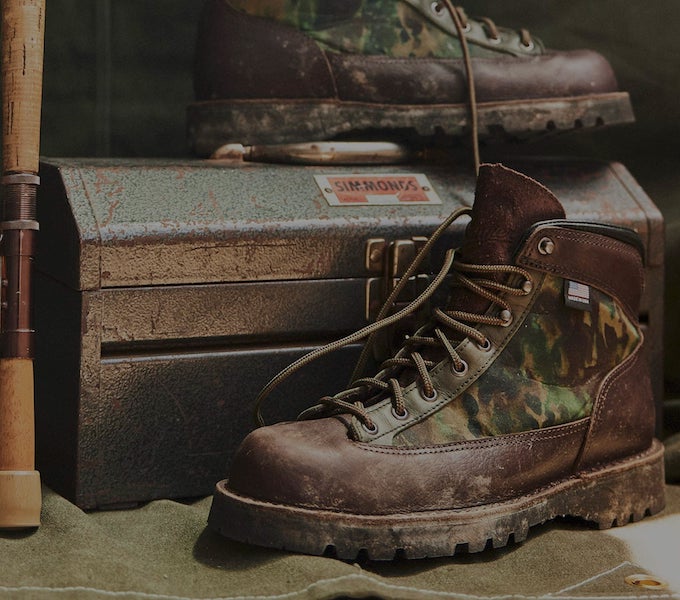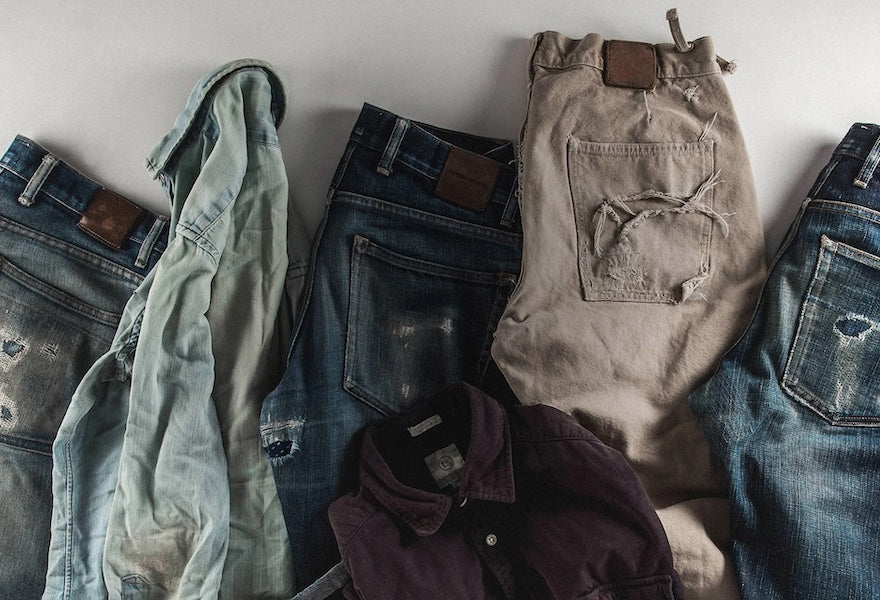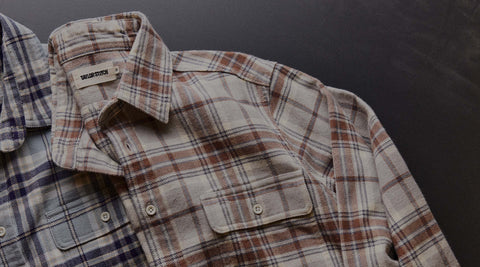As we see it, few items in our wardrobes are as indispensable as the classic Oxford shirt. They’re well suited to most occasions, look great on just about everyone, and easily stand up to years of wear. What is it, then, about this fabric, this style, that has allowed the Oxford shirt to endure for over 200 years while other designs are lost to the history books?

What is an Oxford Shirt?
To be clear, “Oxford” refers to a fabric, not a style. Usually, when we talk about Oxford shirts, we are talking about an Oxford cloth button-down. That is, a button-up shirt with two smaller buttons to hold the collar down. A few other features distinguish Oxfords from the pack, like single-button cuffs, a soft, unstructured collar, and a single, rounded chest pocket. Like we said, though, the main difference is the fabric.
Oxford cloth is a cotton fabric characterized by its basket weave construction, where two heavier warp threads pass over two finer weft threads and then under one. Often, the weft yarns are of a lighter color (usually white), lending Oxford cloth its recognizable checkerboard finish.
Durable, breathable, and comfortable, it’s not hard to imagine what made Oxford cloth such a success. There is, however, a rich history to be appreciated here—one that may deepen your understanding and admiration for this indisputable menswear staple.

History of the Oxford Shirt
Phase One: Origins
In the early 18th century, Scotland was the nexus of all European textile production, supplying fabrics for workforces and aristocracy alike. At one point, one of Scotland’s largest mills (whose name is lost to time) developed four new fabrics and, as part of a marketing campaign, named each after one of the four most popular universities at the time—Yale, Harvard, Cambridge, and Oxford.
While three of the four flopped, Oxford cloth, with its rugged construction and comfort through most climates, earned near-instant commercial success.

By the late 18th century, polo players for the British Raj had adopted Oxford as their textile of choice, choosing it for its grit and breathability. Sometime before 1930, those very polo players would add a practical feature to the Oxford cloth button-down, unknowingly helping it evolve into the style we know and love today.
While racing around on horseback, players notice the soft, unstructured collars of their Oxford cloth shirts (another feature that distinguished Oxfords from the more formal styles of the day) kept blowing into their faces, so many of them began sewing small buttons onto their shirts to keep the collars in place. Legend has it that John Brooks (then President of Brooks Brothers) noticed these button-down collar points while attending a polo match in England and brought the style back to America for his company’s shirts.
Phase Two: Oval Office to Campus Dorms
Once introduced, the Oxford button-down shirt exploded in popularity in the US. In contrast to the stiff, starched-collar business shirts of the time, these new shirts were soft and comfortable while still looking put together. They stormed offices from Wall Street to Chicago to Los Angeles to (most notably) the White House. While he may not have been the first politician to sport the Oxford style, President Kennedy is often credited as the public figure with the most significant impact on popularizing the style amongst a younger audience.

Soon, every Ivy League university was replete with Oxford shirts. This hip, youthful crowd took the style in a more casual direction, pairing them with chinos, shorts, and loafers or rolling up the sleeves and leaving them untucked. That was the genesis of what we now know as the classic “prep” or “preppy” style.
From there, the Oxford knew no bounds. Artists, poets, actors, and outdoor enthusiasts all adopted the style, pairing it with jeans, boots, flannels, and whatever else they had in their closets. Be it tucked in and buttoned up at the office or layered open at the beach, it’s no exaggeration to say that Oxford button-downs have become a ubiquitous fixture of American culture.

Hopefully, by now, you’re convinced that the Oxford shirt is a timeless essential worthy of prize positioning in your wardrobe. So, whether you’re hunting down your first one or looking to add to your collection, let’s go over how to select the perfect Oxford shirt for you.
Picking The Perfect Oxford
Today, Oxfords can be found in various colors and patterns, from classic white, blue, and university stripe iterations to plaids, pinstripes, and polka dots. Ultimately, the finish you choose is a matter of personal taste. However, a few key elements distinguish an objectively high-quality Oxford from its fast fashion lookalikes, the most important of which is material.

Cotton is King
While many brands have transitioned to synthetic blends, for us, it’s not a genuine Oxford unless it’s 100% cotton. Promises of “wrinkle-resistant” and “comfortable stretch” can lead a lot of folks astray, but make no mistake: shirts with synthetic fibers will not last as long, are more difficult to repair, and will not fully biodegrade once they reach the end of their life. So, for your and our planet's sake, just stick to cotton.

How Should An Oxford Fit?
There is certainly some degree of personal preference when it comes to fit, but generally speaking, an Oxford should have a tailored fit with enough room to allow for easy, comfortable movement. Furthermore, a well-fitting Oxford will have high arm holes to prevent bunching and a measured hem that looks great tucked or untucked to ensure maximum versatility.
How To Style an Oxford Button-Down
As evidenced by the style’s eclectic history, your imagination is the only limit to how you can wear an Oxford shirt. Wear it open with jeans and a tee, rock it under a sweater with the collar showing, or layer it under a sportcoat for smart casual style—the options are endless. If you want a deeper dive into styling (and some excellent outfit inspiration), check out our Journal on How To Wear Oxford Shirts.

The Jack
Here at Taylor Stitch, we’re just a bunch of menswear nerds. Heck, this article alone should tell you we think about clothes a bit more than the average guy. And that obsession has led us on a years-long effort to develop our own interpretation of the classic Oxford: The Jack.
Our Oxford Checklist
- Cut from true-to-form 100% organic cotton Oxford cloth—Check ✔️
- A meticulously tailored fit—Check ✔️
- Crafted with rugged double needle construction—Check ✔️
- Lock-stitched buttons and buttonholes—Check ✔️
- A measured hem for tucked or untucked wear—Check ✔️
We call it “The Jack” because this style is a true Jack-of-all-trades. We wear it in the garage, at the office, at the bar with buddies, and just about anywhere else. Over time, that famous basket-weave Oxford softens, developing character and nuance that makes The Jack look better and better with each year of wear.
It may seem like a lot of nitpicky stuff to worry about, but that’s how we do things around here. We’ll labor over the details, while you focus on writing your own page in the history of this menswear icon. Cheers.
Want to dive deeper into the history of other menswear classics? Check out our other Journals:

